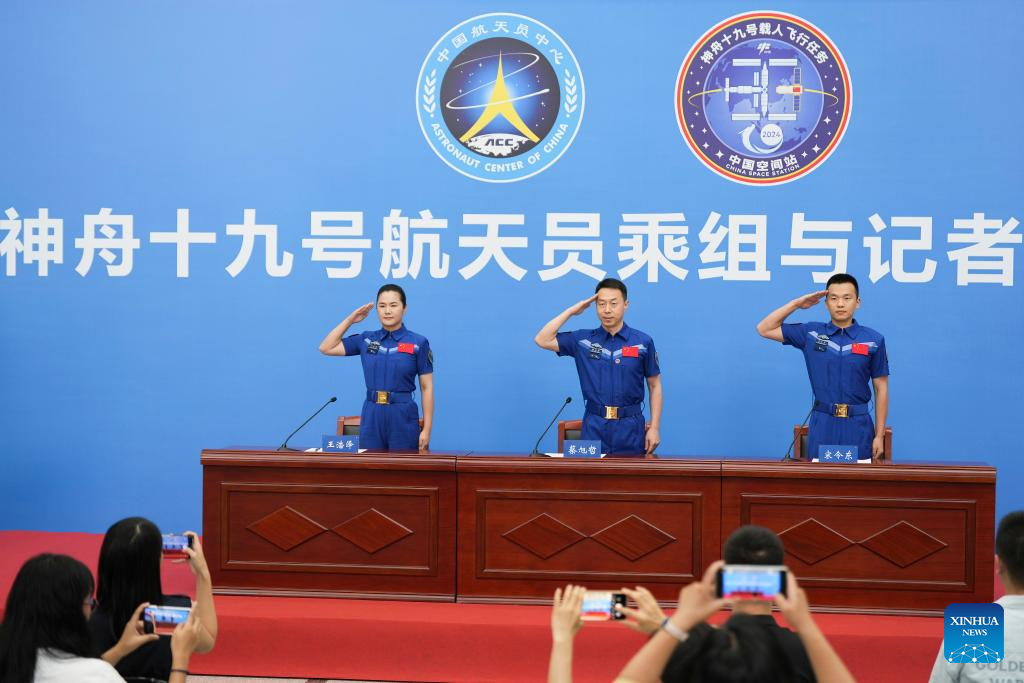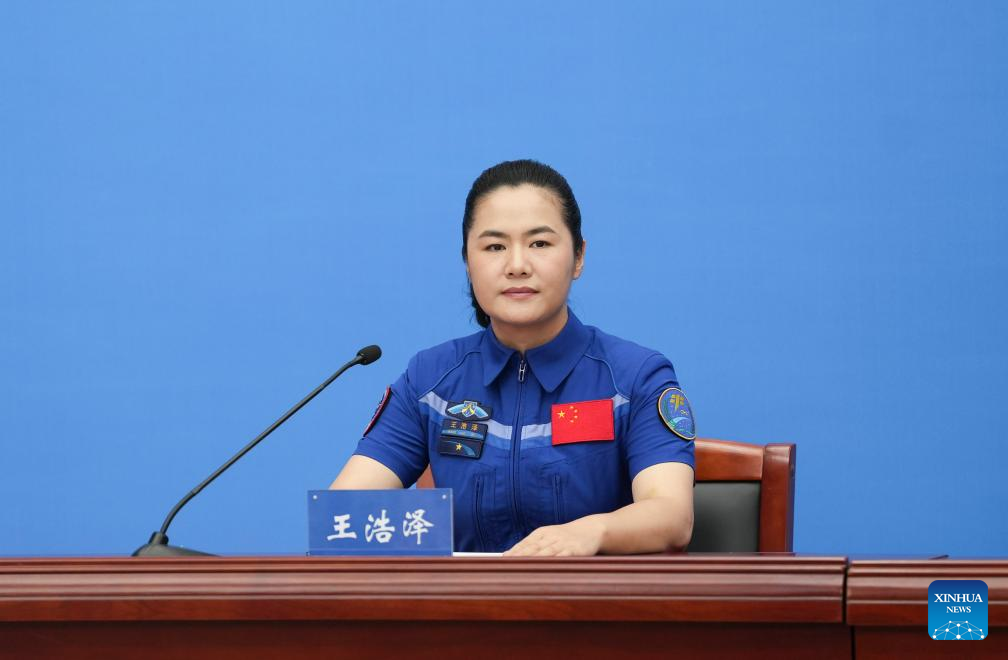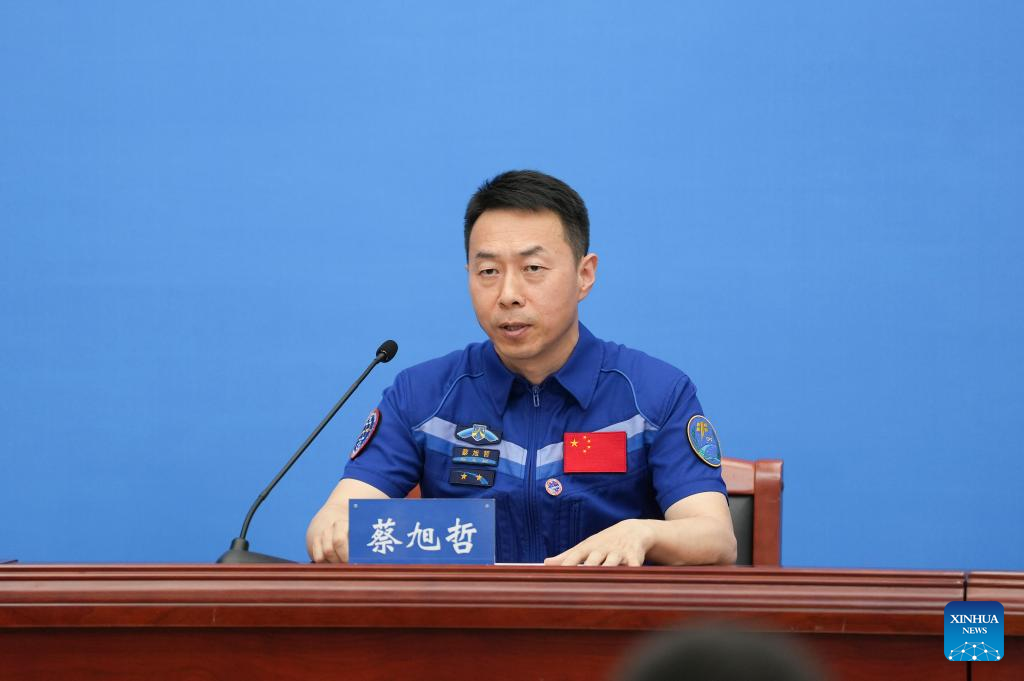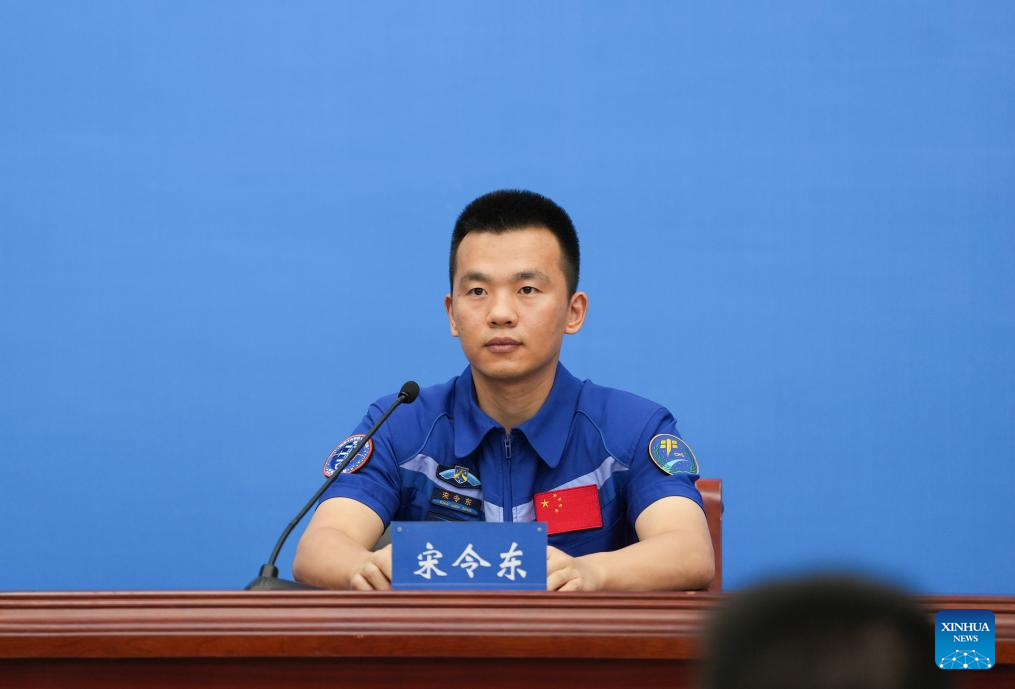
Astronauts Cai Xuzhe (C), Song Lingdong (R) and Wang Haoze from China’s Shenzhou-19 crewed mission salute during a press conference in Beijing, capital of China, July 9, 2025. The three astronauts met the press on Wednesday, their first public appearance after returning to Earth in April. (Xinhua/Li Yanchen)
BEIJING, July 9 (Xinhua) — The three astronauts from China’s Shenzhou-19 crewed mission met the press in Beijing on Wednesday, their first public appearance after returning to Earth in April.
Astronauts Cai Xuzhe, Song Lingdong and Wang Haoze are in good physical and mental health and their medical examination results are all normal. Their muscle strength, endurance and exercise cardiopulmonary function have basically returned to pre-flight levels, according to the meeting.
The Shenzhou-19 manned spaceship was launched on Oct. 30, 2024, and docked with the Chinese space station’s core module Tianhe to form a combination. The trio returned to Earth on April 30.
“During the 183 days of orbital flight, we completed three extravehicular activities (EVAs), multiple cargo delivery tasks, and a number of experiments and tests in various fields,” said Cai, commander of the Shenzhou-19 crew. Many of these projects were implemented for the first time since the country’s space station entered the application and development phase.
Cai has participated in two spaceflight missions: Shenzhou-14 and Shenzhou-19. “Each mission is not a simple repetition of the previous one, but rather a continuous leap towards a higher level,” he said.
During the mission, the Shenzhou-19 crew set a record for the longest single EVA duration by Chinese astronauts — 9 hours in total.
“Every successful EVA is the result of the crew’s unity and the coordinated efforts between the space and ground teams,” said Cai. “It also fully demonstrates the reliability of our extravehicular spacesuits and the confidence of China in aerospace technology.”
The astronauts planted sweet potatoes in orbit for the first time and recorded the entire process from germination to harvest.
“The sweet potatoes grew very well, with plump roots and tubers, and we felt a great sense of achievement,” said Song Lingdong.
Before leaving the space station, they transferred two sweet potato cuttings to their successors.
The Shenzhou-19 astronauts participated in and implemented a total of 88 space sci-tech experiment and test projects and carried out six payload inside and outward module tasks.
As a spaceflight engineer, Wang Haoze said she deeply appreciated the immense effort behind every scientific endeavor and cherished each experiment with the utmost care. She expects more fruitful results of China’s space science and technology.
After completing the tasks of the recovery period and undergoing health assessments, the three astronauts will then resume regular training activities. ■

Astronaut Wang Haoze from China’s Shenzhou-19 crewed mission is pictured during a press conference in Beijing, capital of China, July 9, 2025. Astronauts Cai Xuzhe, Song Lingdong and Wang Haoze from China’s Shenzhou-19 crewed mission met the press on Wednesday, their first public appearance after returning to Earth in April. (Xinhua/Li Yanchen)

Astronaut Cai Xuzhe from China’s Shenzhou-19 crewed mission speaks during a press conference in Beijing, capital of China, July 9, 2025. Astronauts Cai Xuzhe, Song Lingdong and Wang Haoze from China’s Shenzhou-19 crewed mission met the press on Wednesday, their first public appearance after returning to Earth in April. (Xinhua/Li Yanchen)

Astronaut Song Lingdong from China’s Shenzhou-19 crewed mission is pictured during a press conference in Beijing, capital of China, July 9, 2025. Astronauts Cai Xuzhe, Song Lingdong and Wang Haoze from China’s Shenzhou-19 crewed mission met the press on Wednesday, their first public appearance after returning to Earth in April. (Xinhua/Li Yanchen)

